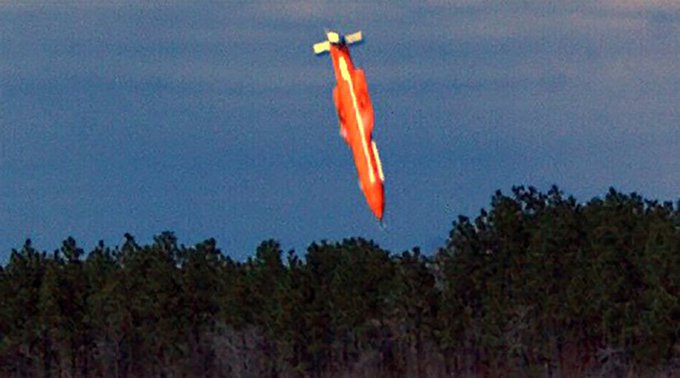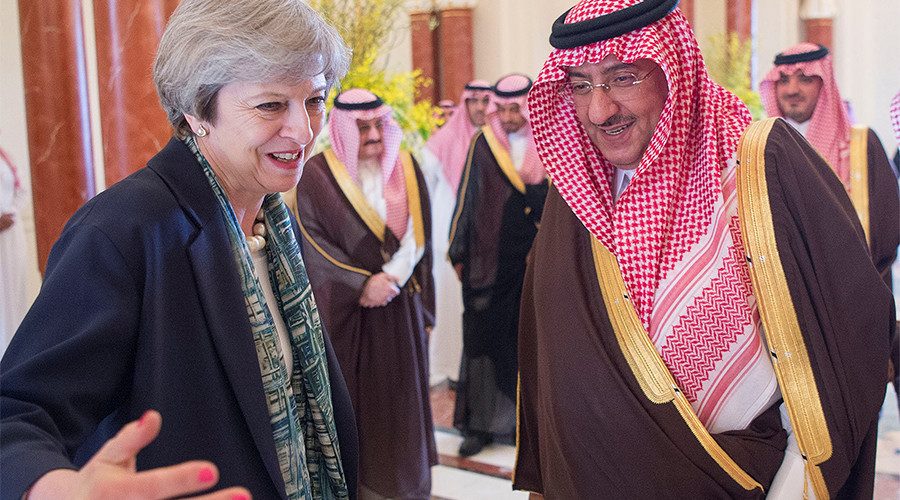Senator John McCain visits Australia to reinforce US alliance
By James Cogan
John McCain, the 80-year-old chairman of the Senate Armed Services Committee and former Republican Party presidential candidate, flew into Australia on Monday. The purpose of his visit was to engage in discussions on Asia-Pacific security issues with Prime Minister Malcolm Turnbull and the foreign and defence ministers, as well as to meet with prominent representatives of the Australian corporate and political establishment.
McCain arrived against the backdrop of a steady build-up toward war on the Korean Peninsula, a provocative “freedom-of-navigation” operation by the US Navy challenging Chinese territorial claims in the South China Sea, and the voicing of differences with the US by major European powers, especially Germany.
To an extent, the senator solidarised himself with the disquiet in Australian ruling circles over the state of affairs in US politics and its impact in Australia. A wing of the Australian establishment is primarily concerned with protecting the country’s major economic interests in Asia, particularly with China, its largest trading partner. This layer has seized on the nationalist economic policies and political volatility of the Trump administration to step up their calls for Australia to distance itself from the US alliance.
What McCain said in private to the Turnbull government is not known. His public statements, however, could be characterised as a combination of appeals and warnings to the Australian ruling class not to deviate from its strategic and military alignment with the US. He indicated that American policy would not, in the final analysis, be decided by Donald Trump and at least implied that moves are underway that may result in the president’s removal.
Presidents, he raised several times, come and go. US-Australia relations, he asserted, “are unbreakable, they are eternal.”
McCain conveyed his open contempt for Trump. In his first public statements—an interview on Monday night with the Australian Broadcasting Corporation’s “7.30” program—McCain said the new president made him “nervous from time to time.” He declared the European powers were “legitimately concerned” and he understood their “repudiation of Donald Trump.”
McCain highlighted his leading role in the campaign against the Trump presidency over its supposed links with, and soft line toward, the Russian government of Vladimir Putin. McCain said Putin was the “premier and most important threat” in the world.
McCain lambasted the American establishment for having “done nothing … to respond to Vladimir Putin’s attempt to change the outcome of our elections.” Last year, he labelled the alleged Russian hacking of Democratic Party servers as an “act of war.”
McCain advocated harsher sanctions against Russia by the US Congress. Most significantly, he endorsed the investigations into Trump’s son-in-law Jared Kushner over supposed relations with Moscow, which have led to calls in the US media for the president’s impeachment.
Last night, McCain escalated his attack on the Trump administration at an event organised by the University of Sydney-based US Studies Centre (USSC). The senator’s audience of 500 people featured a veritable who’s-who of the Australian political, military, intelligence, strategic and corporate establishment, including former prime ministers, John Howard and Bob Hawke.
After hailing the historical relationship between the US and Australia, McCain declared: “I realise that some of President Trump’s actions and statements have unsettled America’s friends. They have unsettled many Americans as well. There is a real debate underway now in my country about what kind of role America should play in the world. And frankly, I don’t know how this debate will play out.”
McCain continued: “What I do believe, and I do not think I am exaggerating here, is that the future of the world will turn, to a large extent, on how this debate in America is resolved.”
Americans, he asserted, “are counting on Australia and our other allies to stick with us... Just as America is counting on Australia, I believe Australia, and our other allies and partners, can still count on America.”
In a particularly blunt warning to the assembled Australian dignitaries, McCain declared: “No-one has ever got rich betting against America, my friends, and now is not a good time to start.”
The senator proceeded to lay out what the US expects from its Australian ally, regardless of who sits in the Oval Office. First and foremost, it is continued collaboration and involvement in the drive to undermine and ultimately shatter China as an economic, strategic and potential military challenger to US global hegemony.
American imperialist strategy, stretching back to the end of the Soviet Union in 1991, has been to prevent any power or group of countries emerging as a rival centre of world power. McCain personifies the ruthlessness which with the American ruling class is prepared to use military force in every part of the globe in pursuit of this strategy.
At present, McCain, along with the Democratic Party, is insisting on action against Russia over Putin’s interventions to disrupt the US and European intrigues in Ukraine and Syria. At the same time, McCain has not in any sense retreated from his insistence that China be opposed on every front—economic, diplomatic and military. McCain was only critical of the Obama administration’s “pivot to Asia” from the standpoint that it was not aggressive enough.
McCain issued a scathing attack on the Trump administration for repudiating a key aspect of the “pivot”—the Trans Pacific Partnership (TPP) economic bloc that excluded China. In a remarkable statement, he suggested that Japan and Australia proceed with the TPP without the US, because “hopefully, in the future, under different circumstances, America will decide to join you.”
McCain addressed the foreign policy debate in Australia that has become more intense as its trade relations with China have expanded exponentially and the US has adopted an ever-more confrontational stance with Beijing.
“I know there is a real concern about Australia becoming entangled in a strategic competition between America and China,” he stated. “And I know that contributes to a belief among some in this country that your economic relationship with China and your security relationship with the US may be irreconcilable, and that you must choose one over the other.”
McCain made clear that, as far he was concerned, Australia has no such a choice. The US, he reminded his audience, “remains Australia’s largest foreign investor” and remained the world’s overwhelming military power.
China, McCain declared, “seems to be acting more and more like a bully.” It was refusing to open its markets, engaging in intellectual property theft and making territorial claims “that have no basis in international law.” The role of the US and Australia, he asserted, was to support “China’s reformers.”
The real choice, he continued, was “whether Australia and America are better off dealing with China’s strategic and economic challenges together, or by ourselves.”
In answer to concerns over Trump, McCain suggested that decisions would be made by the cabal of generals, intelligence chiefs and corporate oligarchs who dominate his cabinet—naming Jim Mattis, H.R. McMaster, John Kelly and Mike Pompeo, as well as Dan Coats and Rex Tillerson.
During a question and answer session, McCain defined more concretely what is wanted from Australia by the wing of the American establishment for whom he speaks. This includes involvement in escalated US military operations against the Russian-backed Syrian government; the dispatch of significant numbers of Australian troops to a new “surge” of US forces to Afghanistan; and support for stepped-up “freedom of navigation” operations against China in the South China Sea.
McCain’s visit was timed to take place one week before the first Australia-US ministerial talks (AUSMIN) under Trump, in Sydney on June 5. The Turnbull government has already announced the dispatch of a token 30 additional troops to Afghanistan. To what else it will agree—or has already agreed in talks with McCain—will likely emerge in coming weeks.
http://www.wsws.org/en/articles/2017/05/31/mcca-m31.html








